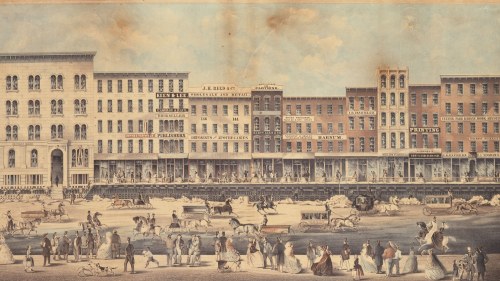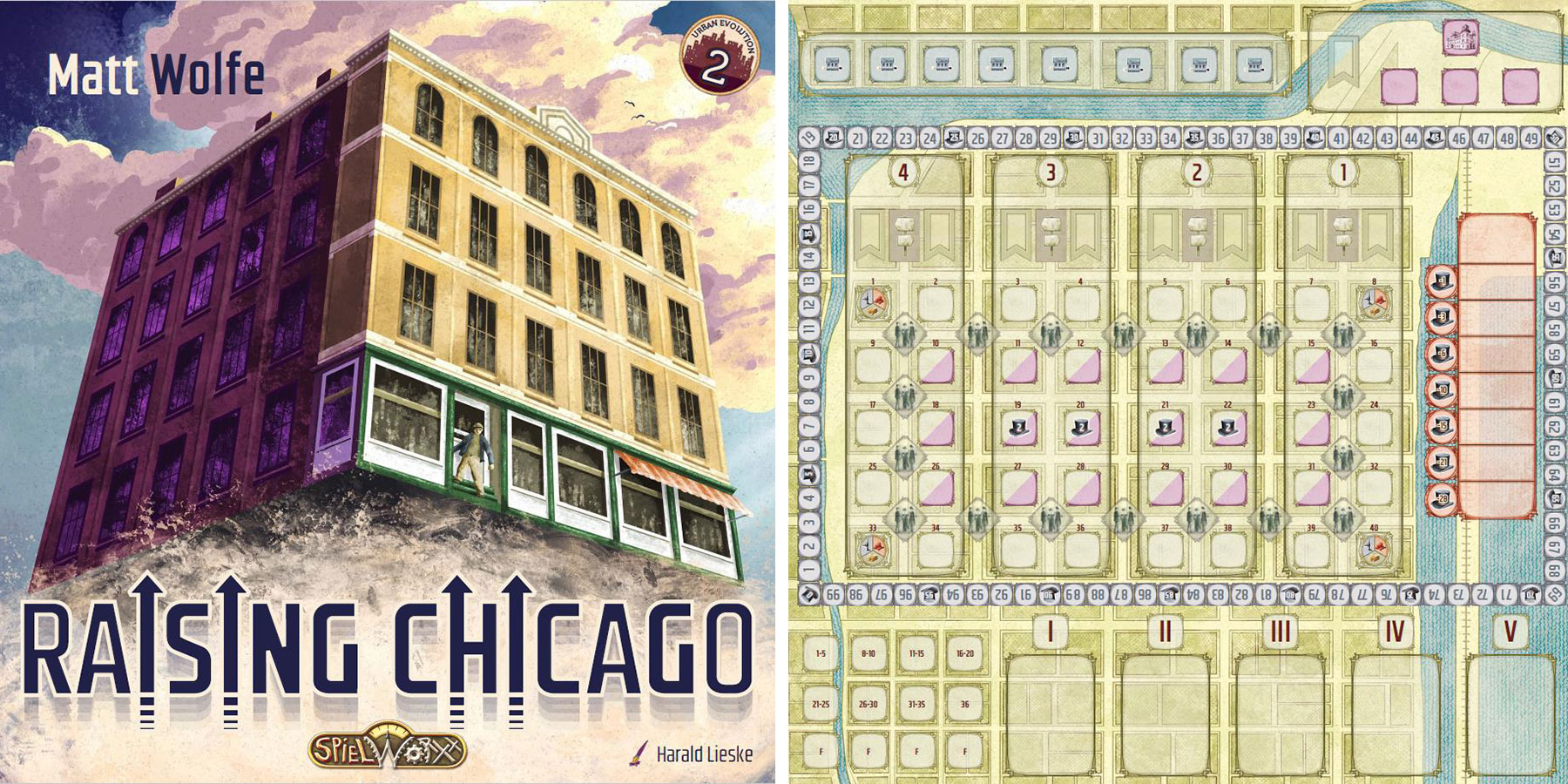Why a German publisher made a board game about Chicago's sewers

Raising Chicago introduces players to an underexplored part of Chicago's early history. The game's transatlantic journey reflects global shifts in the booming board gaming market.
When Matt Wolfe first learned that wombats poop cubes, he thought it was the perfect premise for a board game – and it turns out he was right.
Wolfe told ChicagoGlobal that the cubes reminded him of board game pieces, which inspired the game’s premise. He read up on wombats and learned that, since they use their poop’s scent to navigate their environment, they poop in cubes to prevent their nemesis – the dung beetle – from easily rolling away their leavings and messing up their olfactory orienteering.
Wolfe’s first published board game, 2015’s Wombat Rescue, was the result of that research. Off the back of Rescue’s success, Wolfe has steadily built a part-time career designing board games with creative (even esoteric) premises — and his latest centers on the Windy City. In Raising Chicago, players reenact 19th-century Chicago’s massive civil engineering effort to elevate the city’s downtown and install a modern sewer system.
Raising Chicago attracted attention from a German publisher who expects the game to sell well not only in the Midwest, but also in Europe. While Raising Chicago will introduce international players to an underexplored part of Chicago’s early history, the game’s transatlantic, there-and-back-again journey also reflects global shifts in the booming board gaming market.
Why make a board game about Chicago's sewers?
Gamifying Midwestern city planning started with lots of reading. Wolfe dug into historical material, sieving out nouns and verbs central to the process he wanted to recreate.
“Moving wooden buildings out of downtown…building new prestige buildings, raising non-wooden buildings…those are the action verbs,” he explained. These become the actions that players base their turns around.
The nouns, in turn, become either player resources like masonry and lumber, or equipment like jack screws that players can use to raise buildings. Players take on the role of the contracted construction companies, using their real, historically accurate names, and they earn points by raising buildings.

Raising Chicago is the second entry in a planned trilogy of urban-development games from Wolfe and German publisher Spielworxx, run by Uli Blennemann. Its predecessor, Squaring Circleville, tells the true story of Circleville, Ohio: The town was built within circular earthworks constructed by Indigenous Hopewell peoples, but in the 1830s landowners started converting the town to a rectangular grid system.
“For lots of companies – larger companies bigger than Spielworxx – the topic is indeed a little bit too esoteric,” Blennemann told ChicagoGlobal. “It’s urban development in Circleville, which nobody here in Germany knows about.”
Still, he says there’s a market for games like these — and he doesn’t just mean the Midwest. Blennemann plans to distribute Raising Chicago across Europe and, thanks to a partnership with the American publisher Capstone Games, across the U.S. as well.
“Maybe 20 or 30 years ago, nobody would have touched it,” Blennemann said. But now, “you have games on every possible topic that there is, because the market has grown so much,” he explained.
Your move, America
Germany has historically been one of the largest markets in the world for board games. In the last decade, though, the United States has caught up — ironically in part because of a successful German export: Settlers of Catan.
First published in 1995, Catan has sold 40 million units and it’s become a massive hit in the United States. Players compete with each other to build villages and earn points, but they also have to collaboratively trade with each other to get the resources they need.
“That was the game that really opened the eyes of a lot of people that you didn't have to have a reductive, player-elimination, heavy-conflict game,” said Wolfe. “You could have a game that was sometimes collaborative, sometimes competitive,” and built on trading, “instead of, like, trying to smash your opponents into pieces.”
Blennemann said that German board game culture was once “very different” from the U.S., but that the two have converged in recent decades. Now, games that are popular in Europe also find success in the U.S., and American games sell in Europe.
"It’s a truly global market nowadays."
In that global market, Germany is still home to some of the best-known designers and publishers, and there’s a whole catalog of games named after European cities, said Wolfe.
That hasn’t happened for American cities, which Wolfe thinks is a gap in the market.
“If you do the 13th game this year that is set in a German town, you’d have to do a lot more work to get people excited about that,” he said, while strategy games set in American cities stand out.
Games that draw on American history also have a unique appeal to some European players.
“A lot of Europeans have a romanticized notion of Old America and especially the 1800s – you know, kind of ‘cowboy’ era,” he said. “There’s a little bit of that in play here, of, ‘Oh, when America was young and wide open.’”
For Blennemann, who was trained as a historian, board games are an opportunity to actively navigate your way through history from a first-person perspective and dig a little deeper. And there’s plenty for players to dig into with Raising Chicago.
“My hope is just that this tickles their brain a little bit,” Wolfe says of the game. “And they will hopefully do a deeper dive to see what else they can learn about Chicago. It’s a really neat city.”
This story first appeared in the ChicagoGlobal newsletter, a joint project of Crain's Chicago Business and the Chicago Council on Global Affairs. Subscribe today.

